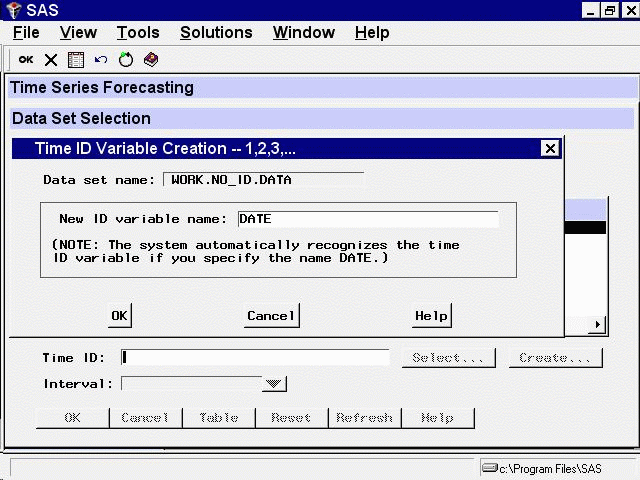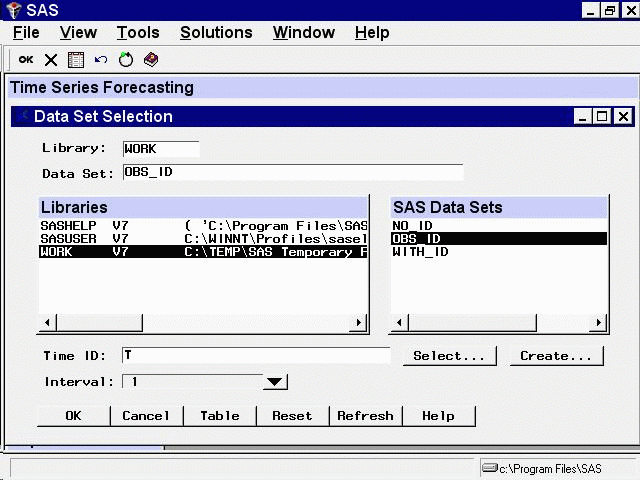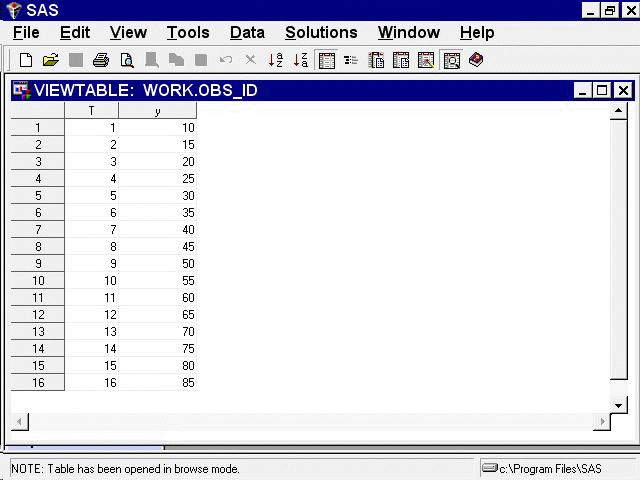Creating Time ID Variables
Using Observation Numbers as the Time ID
Normally, the time ID variable contains date values. If you do not want to have dates associated with your forecasts, you can also use observation numbers as time ID variables. However, you still must have an ID variable. This can be illustrated by adding an observation index time ID variable to the data set NO_ID.
In the Data Set Selection window, select the data set NO_ID again. Select the Create button to the right of the Time ID field. Select the fourth choice, Create from observation numbers. This opens the Time ID Variable Creation window shown in Figure 55.5.
Figure 55.5: Create Time ID Variable Window

Select the OK button. This opens the New Data Set Name window. Enter "OBS_ID" in the New data set name field. Enter "T" in the New ID variable name field.
Now select the OK button. The new data set OBS_ID is created, and the system returns to the Data Set Selection window, which now appears as shown in Figure 55.6.
Figure 55.6: Data Set Selection Window after Creating Time ID

The Interval field for OBS_ID has the value ‘1’. This means that the values of the time ID variable T increment by one between successive
observations.
Select the Table button to look at the OBS_ID data set, as shown in Figure 55.7.
Figure 55.7: VIEWTABLE of Data Set with Observation Index ID

Select File and Close to close the VIEWTABLE window. Select the OK button from the Data Set Selection window to return to the Time Series Forecasting window.